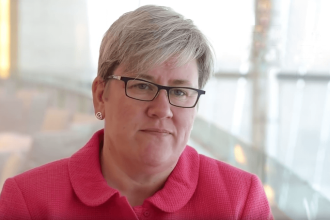By Dr. Deborah Mlongo Barasa
Medicines are not just products; they are the cornerstone of healthcare, tools that alleviate suffering, save lives, and empower health systems to deliver better outcomes.
Without reliable access to affordable medicines, even the most sophisticated health interventions fall short.
To advance this agenda, the Kenya Kwanza administration is adopting key strategies, including pooled procurement and a push for local manufacturing. These are critical measures to strengthen Kenya’s health system, reduce reliance on external suppliers, and promote national health security.
Through pooled procurement, we harness the collective purchasing power of health institutions to negotiate better prices, ensure superior quality, and minimize stockouts. This approach enables more efficient resource allocation, allowing us to reinvest in critical areas such as disease prevention, infrastructure development, and primary healthcare services.
However, procurement alone is not enough. Ensuring that medicines reach every corner of Kenya efficiently and reliably is equally vital. That’s why we are prioritizing coordinated supply chain systems, underpinned by digital technology and realtime data monitoring, to improve distribution, reduce waste, and enhance accountability. A resilient, technology-driven supply chain not only supports routine care but also strengthens our emergency response capabilities.
The role of the private sector and international partners is crucial in this journey. The Gates Foundation and other global health organizations have been invaluable in supporting Kenya’s health access initiatives. Likewise, innovative partners like Axmed are driving groundbreaking solutions that align seamlessly with the Ministry of Health’s agenda.
Axmed’s business-to-business (B2B) marketplace for medicines exemplifies how technology can revolutionize procurement.
By automating and streamlining supply chains, this platform ensures affordability, efficiency, and transparency. Such innovations bolster the Kenya Kwanza administration’s efforts to build a health system that prioritizes accessible and affordable care for all Kenyans.
Moreover, this initiative complements our government’s focus on supporting local manufacturing to reduce dependency on foreign suppliers and bolster national health security.
The Social Health Initiative’s reforms anchored on pooled procurement, digital innovations, and local production will shield Kenyans from catastrophic health expenditures, ensuring that no citizen is forced to choose between essential treatment and basic necessities.
As we navigate current and future challenges, we must continually innovate, collaborate, and invest in solutions that guarantee the availability of quality and affordable medicines for all Kenyans. Strengthening partnerships within Kenya and across borders is essential for fostering knowledge exchange and driving meaningful progress.
Today, as we convene at this Summit, I urge all stakeholders government agencies, private sector partners, international organizations, and civil society to join hands with us. Together, we can achieve the aspirations of the Kenya Kwanza administration by promoting pooled procurement, supporting local manufacturing, and advancing equitable healthcare solutions.
Let us work together to build a resilient, people-centered health system that empowers every Kenyan to lead a healthy and fulfilling life.
END
The writer is the Cabinet Secretary of Health, Kenya




